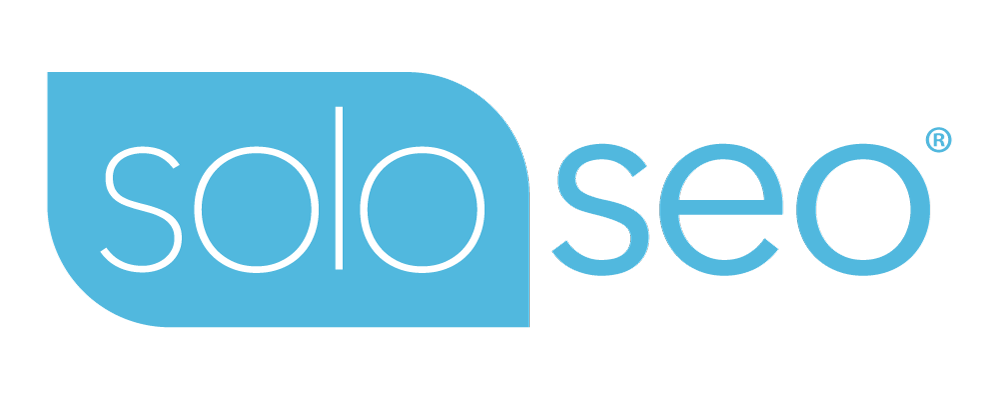 To small business owners, SEO cannot be seen as the “end all – be all” to their potential success, but it rightfully should be considered a “must do” in order to maximize their full business potential. Based on our own situation, and finally deciding ourselves we needed to spend time on SEO, we now understand that getting started in SEO can be a bit intimidating, and very confusing without the right information. The SEO world tends to speak in their own tongue, and their language wasn’t developed, or taught in any business classes I attended. These new terms, whether it was meant to be this way or not, seem to have created a bit of a “barrier to entry,” to use a term we are more familiar with. Essentially the SEO industry created an illusion of “if we don’t know the terminology, it will be difficult to understand or perform SEO, and even tougher to do it well.” I felt the same way at first, but that perception is simply not true. SEO done the right way, without all the tricks and tinkering (which isn’t all that effective anymore anyway), is actually pretty straight forward. Just as simple as learning about credits and debits in Accounting or how supply and demand affect pricing in Economics. Not too tough to understand with a little reading and some hands-on exercises.
To small business owners, SEO cannot be seen as the “end all – be all” to their potential success, but it rightfully should be considered a “must do” in order to maximize their full business potential. Based on our own situation, and finally deciding ourselves we needed to spend time on SEO, we now understand that getting started in SEO can be a bit intimidating, and very confusing without the right information. The SEO world tends to speak in their own tongue, and their language wasn’t developed, or taught in any business classes I attended. These new terms, whether it was meant to be this way or not, seem to have created a bit of a “barrier to entry,” to use a term we are more familiar with. Essentially the SEO industry created an illusion of “if we don’t know the terminology, it will be difficult to understand or perform SEO, and even tougher to do it well.” I felt the same way at first, but that perception is simply not true. SEO done the right way, without all the tricks and tinkering (which isn’t all that effective anymore anyway), is actually pretty straight forward. Just as simple as learning about credits and debits in Accounting or how supply and demand affect pricing in Economics. Not too tough to understand with a little reading and some hands-on exercises.
So if SEO is important, and we can learn it, how much time should we spend on SEO as a small business owner? It is an excellent question, and ultimately depends on how much business a firm hopes to bring in through their online efforts. For example, if a firm has in mind that in 12 months they would like to have 50% of their sales coming from online sources, and they currently only enjoy 5% of total sales from the site, then they should probably spend a considerable amount of time working on the site, making sure all the pieces are in place, so not only will the site’s visibility improve, but potential clients will be happy with what they find. Conversely, if this firm wants only 50% of their sales from online sources, but they now enjoy 60% of total being online generated, then they should focus more attention on more traditional forms of marketing and advertising until this ratio changes.
To get started in SEO, I would recommend just setting aside an hour a day to dive in. At first start just by learning about SEO, either from some pretty good books on the topic here and here, or through a number of blogs we recommend to our readership, namely: Michael Gray (GrayWolf), Todd Malicoat (StuntDubl), Lee Odden (Online Marketing Blog), Rand Fishkin (SEOmoz), and Brian Clark (CopyBlogger). These books and blogs will provide good insight and instruction on the ins and outs of all aspects of SEO.
Once one has a basic grasp of SEO, they really should get themselves an account with SoloSEO, in order to put this knowledge to use, using the most comprehensive set of SEO tool on the web. Much like exercises in Accounting and Economics, actually using the tools, and seeing the results of your work, drives home the SEO concepts, and puts the finishing touches on the learning process. Through working with SoloSEO’s tools, a solid understanding of the pillars of SEO, namely keywords, links and content will form, and SEO will then seem not only doable, but pretty simple.
So once we understand what SEO “is,” then it is time to really understand our industry online, and review what our competitor’s are up to. This online Competitive Analysis can also be done using some of SoloSEO’s tools and reports. We must remember we are competing within a different marketplace, with new competitors, and how they have positioned their sites online, could and should influence how we position and optimize our sites today and in the future. There is not a pre-determined set of guidelines at this point for SEO, no matter what some might say, much of what we need to do to compete most effectively online will be determined by what our competitors have done and will do in the future. While the process of SEO is standardized, the focus of our specific SEO strategy will need to be flexible to face the challenges put forth by our online competitors. If we watch what they do, and manage our online SEO accordingly, then we can keep pace or outpace what they are attempting to do, and better our online exposure.
In my mind there isn’t a business out there today which cannot benefit from an online presence, especially a site that is well prepared, and skillfully promoted. Small business owners need to take every advantage, use every possible tool and strategy available, to insure their eventual, or continued success. I can think of nothing more vital, more accessible and more easily implemented (not to mention more affordable) than SEO. A site which runs well, and effectively targets the right potential clients, promotes a firm’s image in a positive way, while making sales, even while we sleep, or while we play golf (not that anyone would do this during business hours). 😉 Take the time to get to know SEO and you will quickly understand just how big your little company can become, and that realization can be quite jolt.



